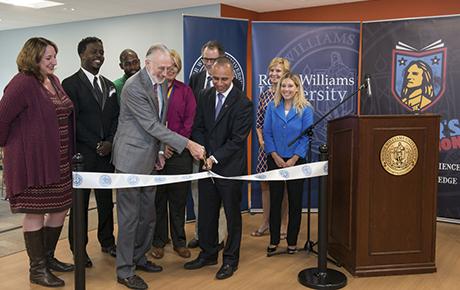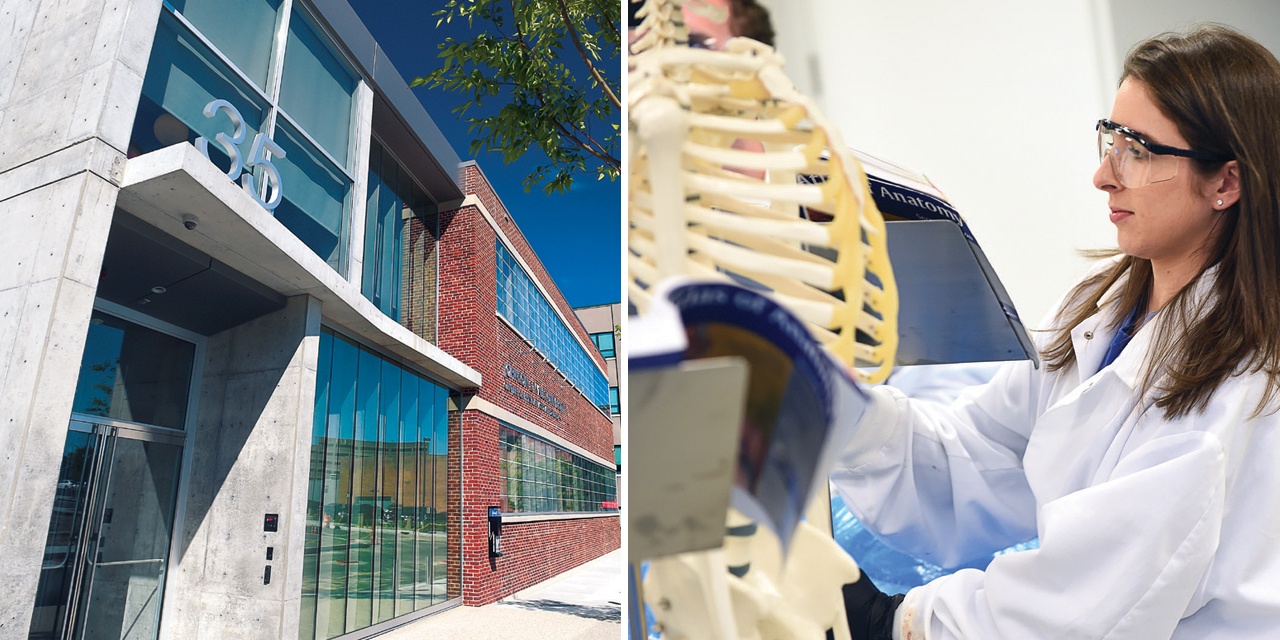With a new campus in downtown Providence and a revolutionary focus on the city’s neediest residents, RWU aims to reinvigorate the workforce – and maybe even the economy.

PROVIDENCE – At a ribbon-cutting ceremony on Thursday formally opening its new downtown campus, Roger Williams University showcased the school’s growing impact on the city’s social and economic fabric – from helping ex-convicts reintegrate into their communities, to delivering college credits to inner-city high school students, to keeping the lights on for poor families in medical distress.
With the inauguration of the campus at One Empire Street, Roger Williams is expanding its presence in the heart of the state to fulfill its mission of strengthening society through engaged teaching and learning. And in doing so, RWU will build the university the world needs now by opening the doors of opportunity to those who have been historically marginalized and unable to gain access to higher education, according to RWU President Donald J. Farish.


